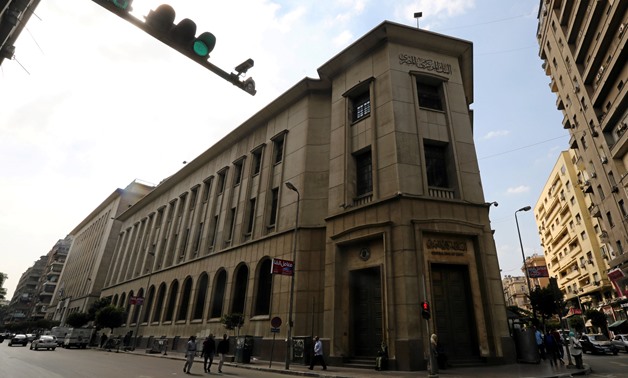
Central Bank of Egypt - Youm7 (Archive)
CAIRO – 5 April 2017: Fitch Ratings warned Tuesday that some Egyptian banks are still at risk and facing difficulties to meet minimum regulatory capital requirements due to the Egyptian currency’s weakness, following its flotation in November, and high exposure to foreign-currency (FC) loans.
On November 3, the Central Bank of Egypt (CBE) abandoned its currency peg against the U.S. dollar, allowing the Egyptian pound to fluctuate freely depending upon supply and demand.
“The currency devaluation will also weaken asset quality, with debt restructuring of loans for smaller corporations already taking place, but we expect only modest deterioration,” Fitch Rating said in the Tuesday report.
In the case of capital shortfalls at public-sector banks, Fitch said it expects the authorities would provide support, “as they did last year when the CBE provided interest-free loans classified as subordinated debt to help recapitalize the country's three public-sector banks.”
“However, the government's ability to support banks is severely constrained by its weak credit profile and financial flexibility. We expect private-sector banks would cut dividends to bolster capital if needed,” it added.
The rating agency cited the capital weakness to the inflation of FC risk-weighted assets due to the pound’s depreciation, with loan growth exceeding 50 percent at some banks in 2016, while capital is predominantly in local currency.

“Capital remains vulnerable to the weakening of the pound as FC loans are significant, reaching 44 percent of the sector's total loans at end-November 2016 just after the pound was floated,” the report read.
Before the pound’s flotation, Egyptian banks had reasonable asset quality with an average impaired loan ratio of 5.9 percent and were 99 percent covered by reserves at end-September 2016.
While the pound’s weakness would result in weaker asset quality for banks, Fitch expects only a “limited deterioration.”
To support smaller corporations harmed by the pound’s devaluation, the CBE agreed with banks to restructure the FC debt of these firms. The restructuring is available to companies with turnover less than 500 million EGP and debt not exceeding $5 million.
The CBE will offer $400-500 million for the banks to cover their open position, and in return the firms will repay their debt in local currency at 12 percent.
Prior to the liberalization of the pound’s exchange rate, Egyptian banks suffered a sharp shortage in dollar liquidity to meet firms’ demand. Fitch said it believes the flotation “will increase the flow of foreign direct investments and help to ease the FC shortage in the Egyptian banking system.”
Comments
Leave a Comment